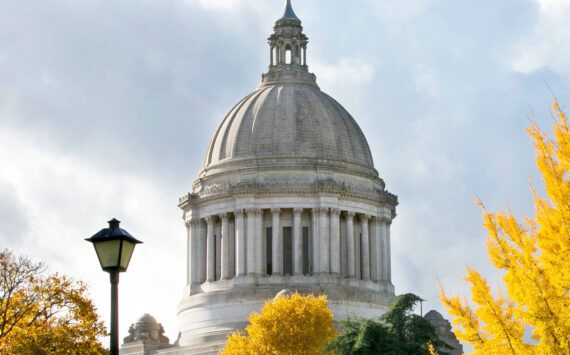GREETINGS FROM—or should that be to?—the heartland of crony capitalism. Northeast Brazil, whence the editors have graciously let me file, is a vast scorched region of oil wells, cowboy myths, religious revivalism, two-step dancing to accordions, and extremes of wealth and poverty. In other words, it’s a lot like Texas. It produces an outsize number of presidents and political powerhouses—again, like Texas, which has given us the Bushes, Phil Gramm, Dick Armey, and Tom DeLay, not to mention the 1980s savings-and-loan “scamdals” and that massive exercise in financial, regulatory, and political skullduggery known as Enron.
Down here are dirt streets and chuckholes—one so big that it’s filled with car tires—that were supposedly paved years ago. Outside town sit roofless blocks of half-built public housing; the contracts and the paybacks were paid, and the work forgotten. The newspaper Cinform reports that just 4 percent of federal social-service funds for this state actually makes it to the needy. The rest gets nibbled on the way from Bras��a. In 1989, the glamorous young governor of the next state up, a Bush buddy named Fernando Collor, went to Bras��a as president. Collor vowed to purge corruption from Brazilian politics and then took it to a new level. His operatives siphoned $1 billion in public funds—just as much, by chance, as Enron’s top executives realized by deceptively inflating their stock’s value.
How does the U.S. government stack up in terms of government corruption? Consider the ties that have bound Enron, the star of Houston’s new economy, and George W. Bush’s career and the Bush family, Bush campaigns, and Bush administrations. Enron traded in political careers as adroitly as it did in gas futures and California energy shortages. Former chairman Ken Lay’s secret meetings with Vice President Cheney and other officials to draft a national energy policy are deservedly notorious, but many more such entanglements are passing largely below the radar. Lawrence Lindsay, Bush 2000’s top economic advisor, was a paid Enron “consultant” who inserted its agenda into the campaign’s energy plan. U.S. Trade Representative Robert B. Zoellick, Commerce Department general counsel Theodore W. Kassinger, and Maritime Administrator William G. Schubert likewise “served.”
Wendy Gramm, wife of powerful Texas Sen. Phil, collected more than $1 million while sitting on Enron’s board and see-nothing audit committee from 1992. In 2000, her husband, the Senate banking chair, snuck through a bill exempting Enron-style energy trading from regulation.
“Prime backer?” This company was a shadow government and a handy slush fund. Bush’s 2000 campaign wanted to keep ex-Christian Coalition director Ralph Reed happy but not have his name red flagging its books. So Bush’s chief enforcer, Karl Rove, asked Lay to hire Reed as a “consultant” for $10,000 to $20,000 a month. No problem.
Already Bush has lied about his ties to Lay more brazenly than Clinton did about Monica Lewinsky. Bush said he met Lay in 1994 when “Kenny Boy” supported his gubernatorial opponent, Anne Richards. The major media noted that, in fact, Lay gave much more to Bush than to Richards during that campaign. Some media noted that Bush dealt with Lay during his father’s 1992 campaign. They don’t note that Lay forged ties long before that—and apparently collected on them. In 1994, The Nation detailed Dubya’s and Enron’s dealings in another energy casino as Argentina sold off its state enterprises. In 1987, brother Neil opened an Argentinean subsidiary of the family oil business. George W.’s 1994 campaign officials denied he’d discussed oil or gas deals with any Argentinean official. The Nation reported, however, that Dubya urged Argentina’s public works minister, Rodolfo Terragno, to approve Enron’s sketchy cut-rate bid to buy the national gas company. And Argentina’s Naci�I> also reported that W. had discussed oil investments with Terragno.
These are just peeks into entanglements that make Whitewater and Watergate look like spare change. But the major media and (judging by the initial Lieberman hearings) the Democrats don’t want to look even that deeply. They studiously shy away from the popular commander in chief’s role and stick to script: No evidence of illegality; the administration rebuffed Enron’s final bailout pleas; this was a failure of corporate accounting, not government accountability. “A case of malign corporate influence on the Bush administration—or old-fashioned accounting fraud?” asks MSNBC—as though it couldn’t possibly be both.
Outrage in the hustings is, as usual, muffled. The Seattle Times’ Web archives, as of Sunday, showed just one editorial on the administration and Enron, urging the former to be more candid; the P-I had published two somewhat stronger editorials.
The pundits are already calling it as a horse race: How much mileage will the Dems get? Not much—the story’s just too big and complicated for the public, let alone TV news, to comprehend. Dig those soaring poll numbers.
Back in Brazil, Collor resigned in 1992, was impeached anyway, and split to Miami, where high society embraced him like a Kissinger. Brazil’s culture of impunity began to crack; newspapers started digging dirt and naming names. But America’s looks stronger as ever.
Eric Scigliano’s media column appears every other week.








